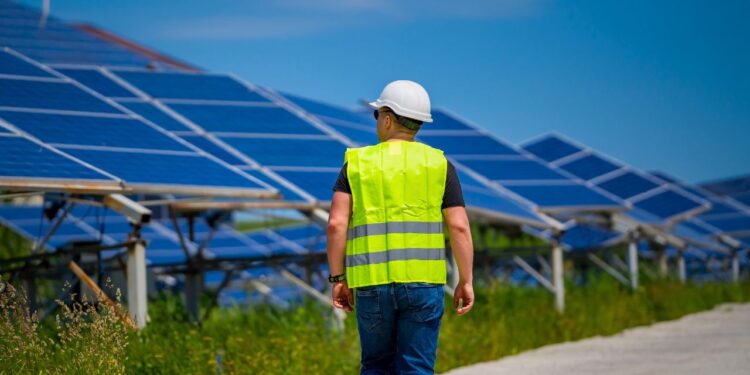On Tuesday, the Biden administration finalized new rules that link subsidies for clean energy projects to higher wages for green workers.
The new guidelines are part of the Inflation Reduction Act, a comprehensive effort to combat climate change while also addressing economic inequality. The newly announced wage requirements as it pertains to clean energy subsidies will only be granted to projects that pay their workers specific prevailing wages.
The policy is designed to boost the incomes of workers in the growing clean energy sector and help push the nation toward a greener future, but it also raises the bar for offering competitive wages in green energy fields to better compete against the oil, gas, and mining sectors, which have seen a 6.4% increase in hiring from April to May.
Reuters reports that by tying subsidies to wage standards, the administration hopes to set a precedent that will encourage fair labor practices across the industry.
Analysts believe that this policy could lead to a ripple effect, raising wage standards across the industry.
“Meeting strong labor standards and building partnerships with unions will now be the norm for clean energy projects,” said John Podesta, Senior Advisor to the President for International Climate Policy, in the official announcement. “Today’s final rules give clarity and certainty to developers and the workers they employ that clean energy jobs will be good jobs.”
For the clean energy industry, it could lead to a more skilled and committed workforce overall, which drives both innovation and efficiency. For the broader economy, higher wages can also translate into increased consumer spending, which benefits other sectors and local economies as well.



 Dr. Gleb Tsipursky – The Office Whisperer
Dr. Gleb Tsipursky – The Office Whisperer Nirit Cohen – WorkFutures
Nirit Cohen – WorkFutures Angela Howard – Culture Expert
Angela Howard – Culture Expert Drew Jones – Design & Innovation
Drew Jones – Design & Innovation Jonathan Price – CRE & Flex Expert
Jonathan Price – CRE & Flex Expert











